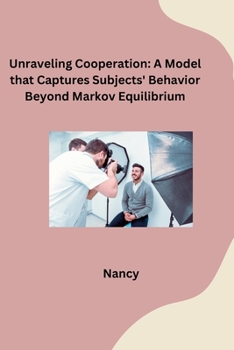Unraveling Cooperation: A Model that Captures Subjects' Behavior Beyond Markov Equilibrium
Cooperation is a fundamental aspect of human society, enabling individuals to achieve goals that would be impossible alone. Game theory provides a framework for analyzing cooperative behavior, but traditional models often struggle to capture the full complexity of human decision-making. One such limitation is the reliance on Markov equilibrium. In this equilibrium, a player's strategy depends only on the current state of the game, not the history of previous interactions. However, empirical evidence suggests that subjects in cooperative games often consider past interactions and anticipate future encounters. They may become more or less cooperative depending on their partner's past behavior, or they may adjust their strategy based on the expectation of future interactions. This paper proposes a new model that incorporates these factors to provide a more nuanced understanding of cooperative behavior.
Format:Paperback
Language:English
ISBN:3384283414
ISBN13:9783384283412
Release Date:July 2024
Publisher:Tredition Gmbh
Length:112 Pages
Weight:0.39 lbs.
Dimensions:0.3" x 6.0" x 9.0"
Customer Reviews
0 rating





